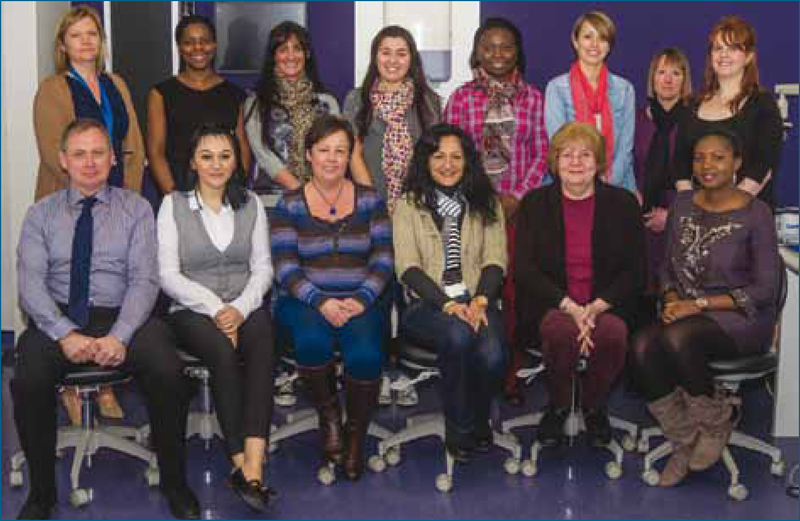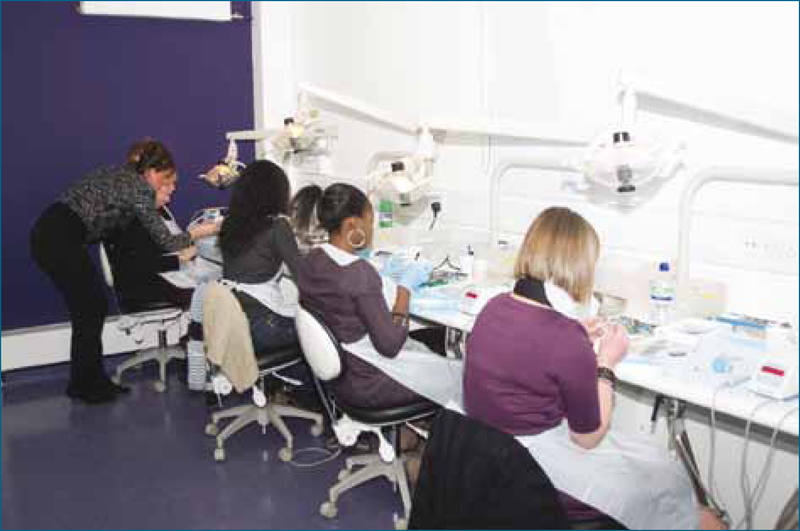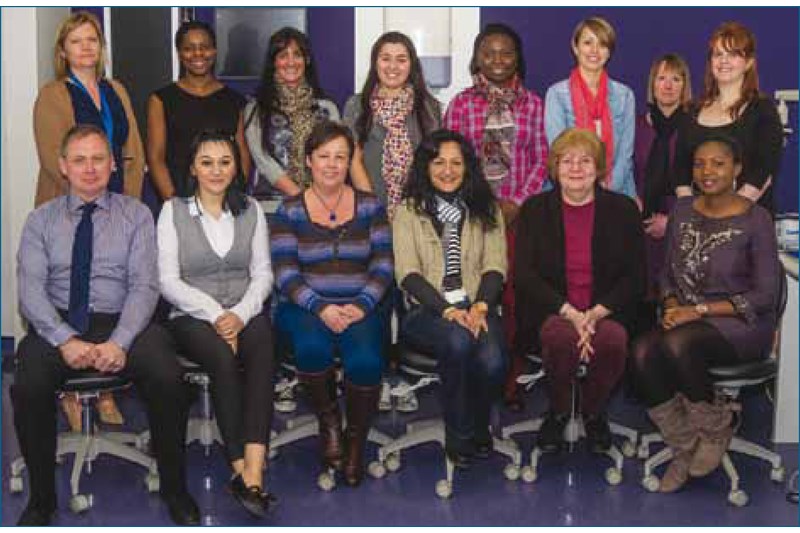New dental nursing certificate in endodontics
Published: 02/06/2014
A certificate in endodontic nursing has been needed for a long time. Not only for increasing knowledge and chairside skills in endodontic nursing but also for recognition of nurses who assist endodontists or general dentists with a special interest in endodontics
Many dental nurses think endodontics is like marmite – you either love it or hate it.
Dental nurses who enjoy endodontics form an integral part of the treatment process. In the author's opinion, many endodontists would prefer to cancel patient appointments if they are not working with a dental nurse who is appropriately trained or interested in endodontics. The more knowledge and training a dental nurse has in endodontics the more they will be able to contribute chairside skills to aid the dentist or endodontist to work more efficiently.
Having worked for many years as an endodontist, both in practice and in the hospital service, I have been privileged to work with many dental nurses who have the same enthusiasm for endodontics that I have.
Once dental nurses have the knowledge and understanding of endodontic treatments, instruments and equipment, then they can truly work in partnership with the dentist or endodontist. The dental nurse has an invaluable role in patient consultations and treatment processes to ensure efficient workflow and most importantly place the patient at ease. Some patients have heard frightening stories about root-canal treatment, making them very nervous. Patients often prefer talking to the dental nurse and looking to them for reassurance and sympathy/empathy. The dental nurse can also help explain root-canal treatment and endodontic disease to the patient, so the nurse and dentist/endodontist can truly work as a team.
Background to qualification
Those dental nurses who are highly skilled in endodontics have, for a long time, wanted to be recognised more formally for this ability. Likewise, the dentists or endodontists they have worked with have wanted this too. Those dental nurses who have specialised in endodontics are sought after and often may command a higher salary.
So in the quest to find recognition and education of dental nurses in endodontics, myself and other dental colleagues have successfully set up a basic certificate in endodontic nursing, the first of its kind in the UK.
The British Endodontic Society has, for a long time, wanted an endodontic nursing course to be started as they feel it is invaluable to endodontics. They have wholeheartedly supported this initiative. The dental nursing certificate in endodontics has been facilitated and set up by King's College Hospital Dental Team Education Centre and supported by King's College Dental Hospital NHS Foundation trust.
Course overview
The course was designed and delivered by Marie Parker, Jillian Eastmond (both nursing tutors), Stephen Cawte (specialist endodontist who works in several central London practices), and myself (Rachel Tomson, specialist and consultant in endodontics Kings College Hospital) (Figure 1). Quality Endodontic Distributors (QED) supported the course by supplying endodontic literature on equipment and examples of instruments. Trish Moore, who is the Sales Representative for QED, offered her expertise as she herself was an endodontic nurse at Lister House, Wimpole Street, London.

Figure 1.The first cohort of dental nurses for the endodontic certificate and our team. From first left, standing respectively, Marie Parker, Jillian Eastmond (nurse tutors). Sitting first left, Stephen Cawte, Specialist Endodontist and far right standing Rachel Tomson, Consultant and Specialist in Endodontics
The course aims to provide practical and theoretical knowledge and skills needed for dental nurses to competently assist with all stages of endodontic treatment (Figure 2). The course covered:
? Aetiology of pulpal and periapical disease
? Diagnosis and management of pulpal and periapical disease
? Patient consent and communication for root-canal treatment
? Root canal anatomy and access cavities
? Materials, instruments and equipment used for root canal treatment including rubber dam and setting up a microscope
? Root-canal preparation
? Root-canal obturation.

Figure 2.Delegates carrying out root-canal preparation on plastic blocks being helped by Trish Moore of Quality Endodontic Distributors (QED)
‘This certificate is the first step in promoting endodontic education and recognition for dental nurses’
In addition to the lectures, there were practical sessions in placing rubber dam, performing root-canal preparation and obturation and chairside assistance.
To achieve this certificate, each nurse had to attend 4 days of face-to-face training (which covered the theoretical and practical aspects of endodontic nursing), complete a portfolio of competence (which demonstrates the dental nurse's skills and competence when assisting during endodontic procedures in the workplace), and correctly answer a series of short answer questions.
Feedback
The first successful course was run in February 2014 and was run over 4 days. The nurses that attended were from general practice, specialist practice, community dentistry, the military service and hospital service.
There was very positive feedback, with comments such as:
‘I now have more understanding for the different stages of treatment and why the dentist is doing what they are doing’
‘It was great to prepare and obturate root canals the practical gave me a better insight into the clinicians struggles’
‘I thoroughly enjoyed this course. It was well presented and a good mix of practical and theory. I am hoping there will be other similar courses in the future (a next stage). Have learnt so much over 4 days. Very interesting and enjoyable’
‘Great teaching, very informative and helpful. It will improve my “endo” journey – thank you’
‘Rachel, Steve and Jill were amazing. Thank you.’
I was lucky enough to include my own nurse in this programme, which has improved our working efficiency. Her job satisfaction has increased as she now plays a more prominent role during procedures, so much so she now suggests alternative instruments and corrects my instrument-passing technique when necessary!
This certificate is the first step in promoting endodontic education and recognition for dental nurses. If you are interested in the basic certificate in endodontic nursing, please visit
Author: MA Healthcare

.jpg?width=300&height=200&scale=canvas)











